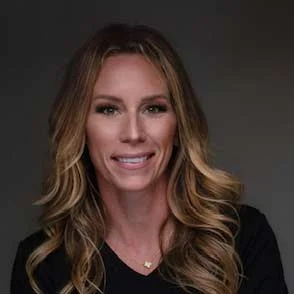A quick disclaimer—the contents of this article are not inspired by my current position as a high school strength and conditioning coach. In fact, the absence of the highlighted issues kept me coming back for year six.
If not from my current position, where do these methods for losing coaches come from? Some are inspired by previous positions, while most are inspired by the experiences of colleagues and friends in the coaching industry.
Enough of the “so I don’t offend my own athletic department”—let’s get to it.
Everyone wants to fill their athletic department and/or coaching staff with great coaches. (Exactly what constitutes a “great coach” is outside the scope of this article. Fill in whatever attributes comprise your mental model of an outstanding coach and read on.)
I would argue that hiring great coaches isn’t that difficult of a task—but retaining them is another matter entirely, says @missEmitche11. Share on XI would argue that hiring great coaches isn’t that difficult of a task—but retaining them is another matter entirely. While this list is far from comprehensive, here are a few time-tested strategies to send even the most battle-tested coaches packing.
Starter Pack Item #1: Erratic Scheduling
We all know “stuff happens” in coaching and in life. Unexpected circumstances turn up, the schedule is altered, we pivot.
The occasional scheduling woe isn’t the focus of this section.
Instead, I’m referring to a chronic lack of planning and preparedness, the result of which is:
- Practices consistently run over.
- Pop-up meetings are the exception rather than the rule.
- Staff members are completely unable to plan anything outside of work.
To put it in more accurate terms: The head coach is holding everyone in the program hostage with their unwillingness or inability to create or stick to a plan. It’s poor leadership and a fast track to staff burnout.
And here’s a hot take: If the staff is burned out, how must the athletes feel?
I’m not here to promote laziness or complacency. Everyone understands that a coach’s schedule is demanding. Instead, I’m promoting having respect for people’s time.
I’ve lived the life of working seven days a week with absolutely absurd hours. Sometimes that’s the job. But there are a couple of ways this kind of workload can play out.
I’m not here to promote laziness or complacency. Everyone understands that a coach’s schedule is demanding. Instead, I’m promoting having respect for people’s time, says @missEmitche11. Share on XIn one situation, the hours are many, and the work is difficult but necessary. Clear communication is given regarding expectations and scheduling. Despite fatigue, coaches stay motivated in the presence of clarity because there is an understanding of purpose. The end goal is at the forefront of everyone’s minds and seems attainable because the process supports the goal. The net result? The work is fulfilling.
In the other scenario, schedules are needlessly inconsistent. Coaches (and athletes) rarely know what to expect. At some point, a person feels they have no control over their schedule, and life outside of work seems impossible. If the hours were needed and the work fruitful? Refer back to scenario #1.
However, wasted time abounds in these circumstances. Schedules are chaotic and poorly communicated. Often there is no purpose to the hours spent at work. When great coaches can no longer identify the purpose behind their toil, they will leave.
To fast-track coaching departures, check out these bonus point opportunities to accentuate an inconsistent schedule:
Bonus Points for: Rescheduling team practices/functions for the head coach’s personal “stuff” (hair appointments, workouts, kid’s soccer games, etc.).
But the head coach isn’t selfish, right? They couldn’t possibly be. After all, they’re a self-proclaimed servant leader. Everything they do must be for the program because they tell everyone it is.
Double Bonus Points for: Preaching “family first” to athletes while needlessly placing stress on the staff’s families. If the staff can’t predict their schedule, it stresses their family.
Create a schedule. Communicate that schedule. And for the love of all that’s holy, stick to the schedule. It’s really not rocket science.
Starter Pack Item #2: Micromanagement of Experienced and Successful Coaches
Hot take: If there’s time for a head coach or administrator to micromanage everyone in their downline, there’s a solid chance that individual isn’t fulfilling all of their own job duties. Instead, they’re annoying everyone in their path and wasting valuable work time coaches could otherwise devote to tasks that would improve the program.
I’m going to take a brief pause to speak directly to readers who hold these leadership positions: Please don’t micromanage your coaches. Instead, empower them with autonomy.
Clearly, I’m not referring to coaches who don’t handle their business. Some coaches may benefit heavily from structured mentorship, but the subject of this article is the high-performing coach.
These high-performing coaches don’t need to be told to “carry a whistle, practice plan, and pen to every practice.” If those items are needed, great coaches will have them.
They don’t need to be told to upload their practice plans into a shared folder that never gets opened.
They don’t need to be treated like a first-year coach. A supervisor’s time would be much better spent fulfilling their own job responsibilities and supporting their coaches versus meddling in the day-to-day affairs of those coaches.
A supervisor’s time is much better spent fulfilling their own job responsibilities and supporting their coaches than meddling in the day-to-day affairs of those coaches, says @missEmitche11. Share on XSome head coaches and administrators just can’t help themselves on the micromanagement front. If this is the case, it’s best to go ahead and rip the band-aid off and get those self-sufficient coaches sprinting out the door as fast as possible using these bonus point strategies:
Bonus Points for: A swerve well outside of one’s lane! A perfect example would be asking a coach to submit a detailed strength and conditioning plan for the athletic director’s review when the AD lacks an accredited strength and conditioning certification of any type or any real experience. For the record, “back in ’89 when I was at XYZ school, I used to run the weight room” does not often constitute real experience. If an AD is that concerned with evaluating the weight room X’s and O’s of a given sport, a consultant should be hired to review programs. I happen to know one.

This next one is so big it’s worth: TRIPLE BONUS POINTS!!! Micromanaging a coach who has had more success in their career than the supervising head coach or AD had during their own.
The supervisor doesn’t just look foolish on this one; they look insecure. If hiring successful people poses a threat to a supervisor’s fragile ego, then the supervisor is the person who should take a one-way trip out of the athletic department’s door.

Starter Pack Item #3: Not Supporting Coaches
Loyalty is preached in the profession but when the wheels come off, is it practiced? I’ll give an example: A colleague at another school and his assistant were called into a parent meeting. The athletic director and school superintendent were present. During the meeting, the parents began shouting expletives at the coaches and calling them names.
The administrators allowed it to continue.
This is 100% UNACCEPTABLE.
Let’s look at a better way to handle this. As I mentioned, some of this article is inspired by events in my past. Here’s a detailed account of what I experienced in a similar encounter.
For context, one of our athletes missed practice for an orthodontist appointment. Congruent with the contract that our players and parents signed at the beginning of the season, she needed to make up the missed practice time before playing in the next game. She could do so by attending any freshman practice scheduled that week.
Upon receiving this “news,” she stormed out of our office into the locker room. As the door closed behind her, she aired her feelings to the rest of the team in no uncertain terms.
The head coach was not amused. The athlete was directed to come back to the office. I decided this would be an optimal time to avert my eyes and check my email as the “discussion” got heated.
Thirty minutes later, I was walking through the hall. The parent of said athlete arrived on the scene, saw me, and lost her mind. I sidestepped into the front office with her in pursuit. It was such a commotion that one of the principals was already en route to intercept the debacle as it unfolded and quickly quarantined the “meeting” to his office. The parent continued to scream in my face. (To be honest, it was so over the top, I’m laughing at the memory as I type this but wasn’t laughing at the time.)
The principal (a former coach) looked at me and said, “Coach Mitchell, you won’t be spoken to this way. You can go to practice. If we need anything from you, we will let you know.”
Later that afternoon, both the head coach and I received apologies from the parent and the athlete.
That’s how to back up staff.
Looking back at the first scenario, a simple “Since you’ve chosen to berate our coaches, this meeting is over. There won’t be another until you can conduct yourself in a rational manner” would have gone a long way to demonstrate loyalty. Instead, the situation demonstrated to the coaches that the administration would allow parents to treat coaches poorly.
What is allowed is encouraged.
Clearly, the “what not to do” incident above is an example of an objectively unacceptable occurrence within an athletic department. But is it always such overt scenarios that send coaches over the edge? No. More often than not, it is a series of subtle nudges, each one putting the coach nearer and nearer to the brink of departure.
It isn’t always overt scenarios that send coaches over the edge, but a series of subtle nudges, each one putting the coach nearer and near to the brink of departure, says @missEmitche11. Share on XSo, what might these subtle nudges look like? I’ll just bullet point a few for purposes of brevity:
- Head coaches allow athletes and parents to treat assistant coaches with less respect than they are expected to treat the head coach.
- Head coaches “correct” assistants in front of athletes or other staff rather than doing so behind closed doors.
- ADs discuss one coach’s job performance with another coach of equal or lesser rank.
- ADs “forget” to mention the accolades of some coaches during staff meetings while lavishing praise upon others.
- Blatant favoritism is shown on social media. Are some coaches/teams posted about, liked, or retweeted in disproportionate amounts?
Great coaches won’t stick around very long if they know they won’t be supported when issues arise or when they don’t feel supported in their daily operations.
Starter Pack Item #4: Using a “Lack of Family” as an Excuse to Overwork People
A fan favorite: off-loading work onto coaches who don’t have kids. They can come in earlier, stay later, and take work home, right? Absolutely, if the goal is to make them rethink coaching as a career.
As a childless coach myself, this one hits close to home.
I once went to an associate AD to discuss my sports assignments. My workload was absurd, and my sports overlapped to the point that I needed to miss eight off-season workouts with one team to travel with another. I was being pulled in too many directions, and my overall well-being began to suffer.
During the meeting, I was told (exact quote): “If you had kids, we would change your sports assignments.”
I’m no expert in human resources, but I’m sure this is not okay. Instead of filing a complaint or whatever my legal course of action might be, my next entrance into that AD’s office was to submit my letter of resignation. Every broken camel back comes from one final straw. This was mine. I wouldn’t and won’t be punished for my family structure.
As mentioned in the section above, this starter pack item often transpires in more subtle ways. Coaches without children might be given early morning or late evening responsibilities, while those with children find themselves off during these hours. More specifically, this could look like placing a childless coach in charge of monitoring the athletes while they set up the volleyball net in the gym before morning practice. Meanwhile, the head coach strolls in with Starbucks right before (or even after) the start of practice. It might also look like assigning the coach without children to sit and wait on parents to pick up athletes after a late-night arrival home from a game.
The truth of the situation is that a coach must be present in both cases. But it shouldn’t always be the coaches without kids. If it is? Those with kids who are benefiting from this arrangement should be expected to pick up slack elsewhere. At the very least, walk in with two Starbucks in hand.
When penalizing employees for not having families, it’s essential to keep a few things in mind:
First, it’s 2022. Family doesn’t mean a hetero-cis spouse, 2.5 children, a Labrador retriever, and a hamster. It can take many forms, and one is not superior to another. Personal biases should be cast aside to embrace the diversity of today’s family.
Second—and this may come as a shock to some—there are actually people who don’t want children. It’s true, and it doesn’t make their personal time any less valuable.
This may come as a shock to some, but there are actually people who don’t want or are unable to have children… This doesn’t make their personal time any less valuable, says @missEmitche11. Share on XOn a related note, some people desperately want but are physically unable to have children. Often, they aren’t sharing this information at their place of business. Punishing people for not having kids through either overt or passive-aggressive tactics is wildly insensitive. “But I didn’t know,” one might say. Exactly. Coaches should be treated fairly regardless of family status and structure.
Finally, there is a coaching shortage. Will overworking anyone in the early stages of their career, before they have kids, lead to them staying in the profession? Nope. They will probably bail for fear that they will be unable to balance their career and family if and when that time in their life arrives.
Bonus Points for: Complaining when coaches bring their children to work.
To review: Coaches without kids are second-class citizens. Coaches with kids? The children are to be heard of but never seen. It matters not to insensitive supervisors that childcare doesn’t open until 6:30 a.m. and closes at 5:30 p.m. or that the parent is at work outside of those hours due to starter pack item #1. Figure it out.
Insensitive head coaches and ADs walked uphill in the snow both ways, carrying a baby in each arm. So should everyone lower in the hierarchy.
Athletic departments that take this approach shouldn’t expect to retain great coaches.
Starter Pack Item #5: Abysmal Salaries
The final addition to the starter pack is an obvious one.
It’s simple: If people can’t afford to live, they’re going to leave. Additionally, if they can do the same job elsewhere for more money, they’re going to leave.
Who better to advocate for salary increases than head coaches and athletic directors? Yet how often is that occurring? Strength and conditioning coaches, assistant coaches, and other support staff members can shout “we are worth more” until the cows come home, but until head coaches demand these pay raises within their program, the needle likely won’t move.
Who better to advocate for salary increases than head coaches and athletic directors? Yet how often does that occur, asks @missEmitche11. Share on XI will say I’m not entirely convinced that low salaries are solely the fault of the employer. If a position opens with a salary range of $25,000–$35,000 and there are 50–100 applicants, does this communicate to the employer that this isn’t a livable wage? It does not. It communicates that 50–100 people are willing to do more for less. So, they’re going to keep paying less.
The coaching industry finds itself in a little bit of a pickle: Until the willingness of the supply chain to work for pennies is altered or those in positions of authority step up to the plate and demand fair wages, pay increases aren’t likely. Coaches will enter the profession at these rates, but they won’t stay. It’s the circle of life low retention in the industry.
Final Thoughts for Employers
It’s pretty simple; don’t do what I wrote about above. Instead:
- Stick to a schedule.
- Give coaches autonomy.
- Back coaches up.
- Treat all coaches fairly.
- Pay coaches a livable wage.
And do these things consistently.
Final Thoughts for Coaches
I’ve seen it stated that “great coaching jobs don’t become available.” This means if coaches are:
- Treated fairly and with respect.
- Empowered to make the decisions that benefit their program and athletes.
- Allowed work/life balance.
They will hold on to these positions for a very long time.
Food for thought when submitting an application to a position with frequent turnover.
If your ego says, “It will be different because I’ll be better (than the last coach)?” I’ll catch you on social media posting a “thanks for a great 2 years at X Academy” letter after you’ve figured out your predecessor wasn’t the problem after all. The problem was that the people they worked for operated using a grab bag of starter pack items, just like the ones they used to send you on your way.
Since you’re here…
…we have a small favor to ask. More people are reading SimpliFaster than ever, and each week we bring you compelling content from coaches, sport scientists, and physiotherapists who are devoted to building better athletes. Please take a moment to share the articles on social media, engage the authors with questions and comments below, and link to articles when appropriate if you have a blog or participate on forums of related topics. — SF





